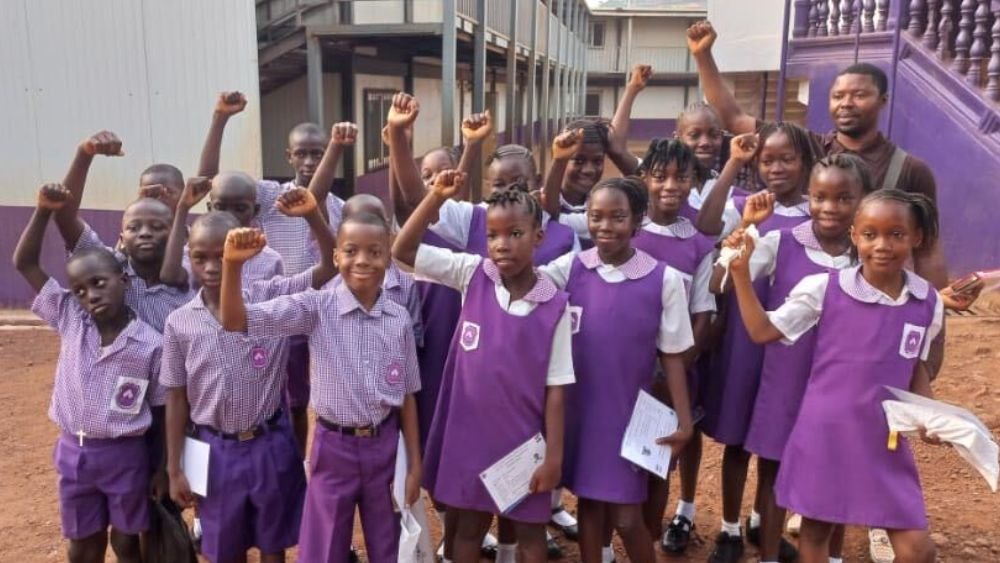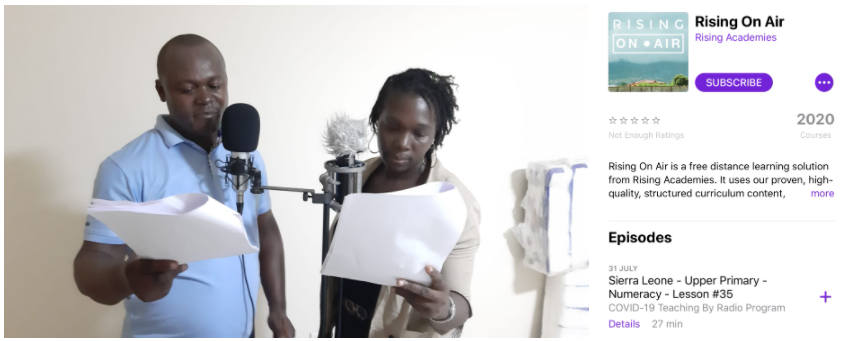It wasn’t an easy decision to give all that up and return to Liberia. Leaving New York meant leaving a system and a network of education leaders I knew well for a country that had not been home to me for three decades. It meant leaving one of the largest and best resourced school systems in the world for one of the smallest and poorest. New York’s public schools spend more money educating an elementary school pupil for half a day than a Liberian school would spend in a year.
But I’ve always known it was a question of when, not if, I would come back. I tried once before, spending two years working for Professor Amos Sawyer’s Governance Commission before that other great Liberian tragedy, the Ebola epidemic, cut short our work. In truth, it was not just the logistical disruption that sent me back to the US, but the realisation that my skills were not what the country needed at that time. I vowed to come back when I had more experience, and when my skills as an educator could be put in service of the right mission.
Which is how, on the 3rd April 2023, I found myself on my way back to Greenville. It was three months since I had taken over as Managing Director for Rising Academies in Liberia, and I was visiting Greenville for the first time in my new role. Rising partners with the Ministry of Education to operate 95 public elementary schools in Liberia, 12 of them in Sinoe County.
Since leaving Greenville all those years ago, I have been back from time to time. But this visit was different because one of the Rising schools I was visiting was Elementary Demonstration, and Elementary Demonstration is special to me and my family. Across the street from the school is the house where I was born and raised. In the evenings, after a hard day’s work selling used clothes and raising her children, my mom, Comfort Toe, would cross the street from our house for night school classes at Elementary Demonstration. She dreamed of giving her children an education, and in the end even a war couldn’t get in the way of that dream.
I started my day by watching a FasterReading session - a literacy program that Rising has rolled out across its schools in Liberia to help students build the foundational literacy skills they need if they are to succeed. After the session, I wandered down the hall towards the Principal’s office to give her some feedback on what I’d observed when a voice called out “Muki!” I turned around in shock. It’s a nickname only my friends and family would know. It was my cousin Juah Kanmoh. It turned out he teaches Grade 2 at the school. And it’s not just in the staff room that I found relatives. There were distant cousins in nearly every grade.
Being back in my hometown, and back at Elementary Demonstration, brought mixed emotions. Sadness, that some things are as bad today as they were 30 years ago. Elementary Demonstration is still a struggling, under-resourced public school serving families who are no better off than their parents and grandparents were. The classrooms are still filled with students over-age for their grades, like my mother was back in the 80s.
But hope, too. Hope inspired by the excitement of the students to learn. Hope inspired by the commitment of the staff to their community and their country. And hope inspired by the work Rising is doing to help. We’re training teachers and equipping them with world-class curriculum materials. Our coaches - what we call School Performance Managers - visit each school once a week to provide real-time coaching and feedback, monitor learning and child protection and collect data we can use to further refine and improve our program. We are changing how people view public education in Liberia.
People often ask me why I moved back. It’s pretty simple. I am one of 10 kids. Two of us got out. Eight didn’t. I was no more deserving than my brothers and sisters that were left behind, nor for that matter the thousands of other kids just like us who went through things no child should experience.
I live with that guilt every day. But on my better days I can find my way to seeing it not as guilt but as obligation. I guess you could say I left something behind in Greenville when we ran for our lives that day, and it has called me back ever since. I could not help then; I can help now.
Later that day in April, at another Rising school nearby, I met a different relative of mine. This young man is not even yet on the government payroll, but still commutes an hour-and-a-half each day on a bike to get to school where he is paid a meagre stipend for his efforts. For years, many of the villages around here did not have schools, and if they did, it was just a building without teachers because few would venture out to the far eastern counties. During his lunch break, we talked about how proud our townspeople are of him, and I asked him what keeps him motivated to work so hard for so little. Like me, he is obsessed with ensuring every child from the village has the opportunity to learn. “This is where we are from,” he said. “This is who we are.”
You can watch the full story below:














































